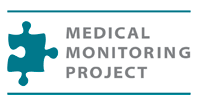Research

CDC provides national leadership for HIV prevention research, including the development and evaluation of HIV biomedical and behavioral interventions to prevent HIV transmission and reduce HIV disease progression in the United States and internationally. CDC’s research efforts also include identifying those scientifically proven, cost-effective, and scalable interventions and prevention strategies to be implemented as part of a high-impact prevention approach for maximal impact on the HIV epidemic.
The AIDS epidemic, although first recognized only 20 years ago, has had a profound impact in communities throughout the United States.
The Serostatus Approach to Fighting the HIV Epidemic: Prevention Strategies for Infected Individuals
R. S. Janssen, D. R. Holtgrave, and K. M. De Cock led the writing of this commentary. R. O. Valdiserri, M. Shepherd, and H. D. Gayle contributed ideas and helped with writing and reviewing the manuscript.
 CDC has provided funding to HIV partners to help implement programs that will help curb the increase of HIV infections. These programs facilitated with our partners and grantees are critical in the goal of eliminating HIV infection in the United States.
CDC has provided funding to HIV partners to help implement programs that will help curb the increase of HIV infections. These programs facilitated with our partners and grantees are critical in the goal of eliminating HIV infection in the United States.
 CDC has researched several HIV prevention interventions that have proven effective in helping to prevent HIV infection in certain populations and communities.
CDC has researched several HIV prevention interventions that have proven effective in helping to prevent HIV infection in certain populations and communities.
 CDC has worked with key cities to create effective policies and programs to curb the tide of HIV infections in those cities. These cities have higher rates of HIV due to a number of factors therefore making them key locations for studies.
CDC has worked with key cities to create effective policies and programs to curb the tide of HIV infections in those cities. These cities have higher rates of HIV due to a number of factors therefore making them key locations for studies.
Featured Reports
- Assessment of 2010 CDC-funded Health Department HIV Testing Spending and Outcomes
- HIV Testing Trends in the United States, 2000-2011
- HIV Testing at CDC-Funded Sites, United States, Puerto Rico, and the U.S. Virgin Islands, 2010
- HIV Prevention Funding Allocations at CDC-Funded State and Local Health Departments, 2010
Medical Monitoring Project
 The Medical Monitoring Project (MMP) is a surveillance project designed to learn more about the experiences and needs of people who are receiving care for HIV. It is supported by several government agencies and conducted by state and local h ealth departments along with the Centers for Disease Control and Prevention.
The Medical Monitoring Project (MMP) is a surveillance project designed to learn more about the experiences and needs of people who are receiving care for HIV. It is supported by several government agencies and conducted by state and local h ealth departments along with the Centers for Disease Control and Prevention.
Cost-effectiveness of HIV Prevention
- The cost-effectiveness of HIV prevention efforts has long been a criterion in setting program priorities. The basic principle is straightforward: choose those options that provide the greatest outcome for the least cost.
- The fact sheet Projecting Possible Future Courses of the HIV Epidemic in the United States compares the cost-effectiveness of three different prevention investment scenarios.
Prevention Research Synthesis Project
The HIV/AIDS Prevention Research Synthesis (PRS) Project identifies evidence-based HIV behavioral interventions (EBIs) listed in the Compendium of Evidence-Based HIV Behavioral Interventions to help HIV prevention planners and providers in the United States choose the interventions most appropriate for their communities.
Highlights of Program and Research Activities
- On January 1, 2012, CDC began a new 5-year HIV prevention funding cycle with health departments, awarding $339 million annually.
- The DEBI project brings science-based HIV prevention interventions to community-based organizations and state and local health departments.
- The STD/HIV National Network of Prevention Training Centers provides training for health departments and CBOs on the HIV prevention interventions.
- Page last reviewed: March 20, 2017
- Page last updated: March 20, 2017
- Content source: Division of HIV/AIDS Prevention, National Center for HIV/AIDS, Viral Hepatitis, STD, and TB Prevention, Centers for Disease Control and Prevention


 ShareCompartir
ShareCompartir